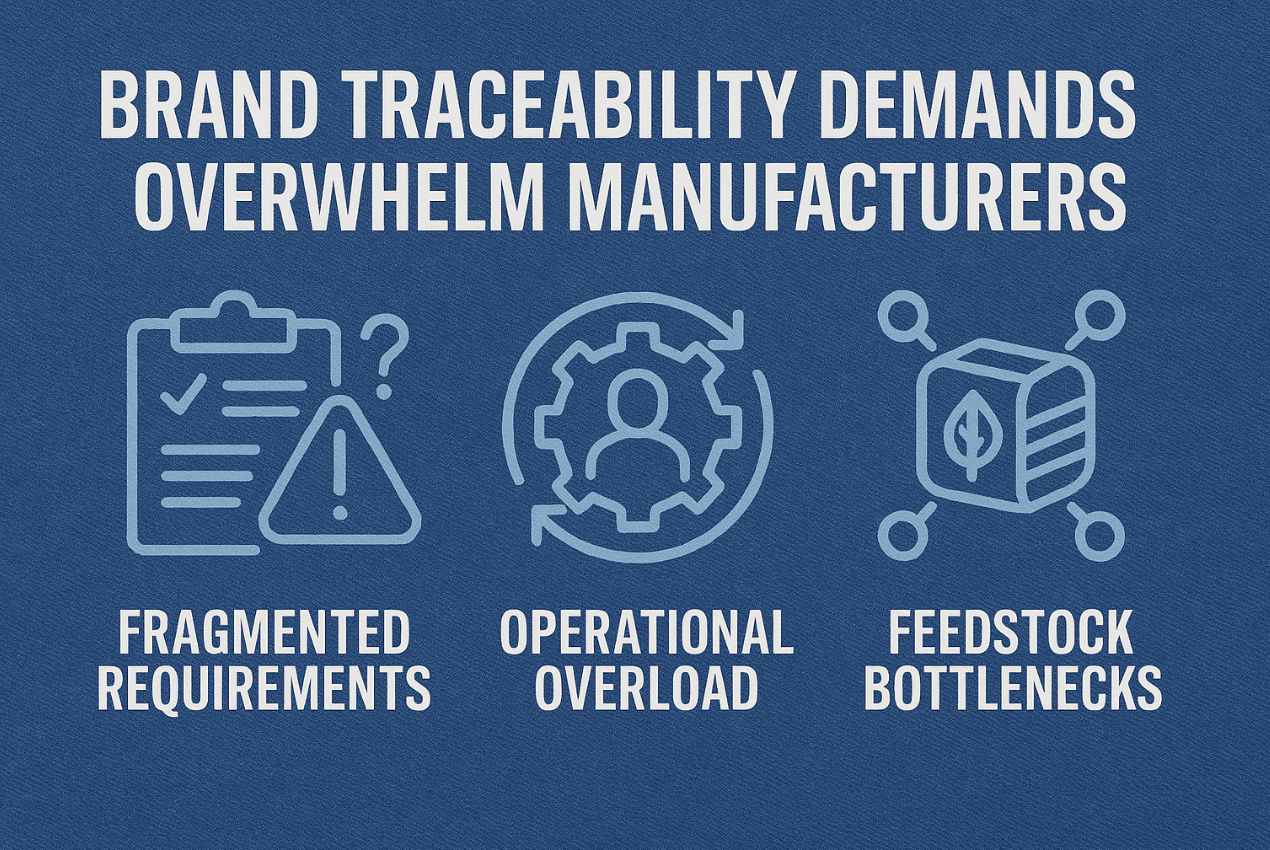
Navigating the New Tariff Landscape: How Denim Brands and Suppliers Can Thrive Amid US Trade Shifts

The global denim industry faces its most disruptive moment in decades as the United States enacts its highest tariffs since 1936. The “Liberation Day” tariffs, introduced in April 2025, have raised average apparel import duties from 14.5% in 2024 to as high as 30.6% overall, with Japanese selvedge denim facing 24%. These tariffs threaten years of progress toward sustainability and circularity in denim.
Costs for recycled fibers and biodegradable packaging have skyrocketed, stalling sustainability investments. Ethical certifications like Fair Trade have become financially unviable for many small brands. Efforts to localize production are hampered by U.S. labor shortages and infrastructure gaps, leaving brands scrambling for solutions.
Denim and the broader textile industries are absorbing disproportionate impacts across supply chains. Consumer prices have risen approximately 17% apparel-wide and up to 28% for denim. Tariffs escalated to 125% on Chinese imports and imposed 10–50% rates on key denim-producing nations like Vietnam (46%), Bangladesh (37%), and Lesotho (50%). This disordering has forced brands into survival mode, undermining sustainability initiatives and making domestic production untenable for many. For example, a $10 fabric increase for a brand like 3sixteen ballooned to $50 at retail.


Before these tariffs, the U.S. led global denim consumption, relying on a mix of domestic craftsmanship and international sourcing. Artisanal brands used Japanese selvedge denim for premium products, while mass-market players depended on cost-efficient Asian manufacturing. Sustainability efforts require global supply chains to access specialized materials like Turkish organic cotton or Italian merino wool.

For Turkish and EU producers, the new tariff structure offers a rare competitive advantage. With Asian competitors facing higher duties, Turkish manufacturers—renowned for high-quality denim—have become attractive sourcing partners for U.S. buyers. However, Turkey’s recent political turmoil and the sharp devaluation of the lira have introduced new risks. Rising input costs, inflation, and currency instability are squeezing margins for Turkish textile producers, making it harder for them to fully capitalize on the tariff advantage. This adds a layer of uncertainty for U.S. brands relying on Turkish sourcing, as the benefits of lower tariffs may be offset by higher costs and financial volatility. This said, alternatives lack China’s scale, causing production bottlenecks, especially for recycled fiber value chains.
The tariff upheaval challenges the recycled fiber value chain, which depends on complex global networks. The Recycled Materials Association notes that recycled imports from Canada and Mexico qualify for USMCA tariff exemptions only if collected in North America and certified, creating administrative burdens for smaller suppliers. Outside North America, tariff increases have inflated costs for recycled fibers and biodegradable packaging, stalling sustainability investments. Cross-border waste and recycling shipments face new barriers, threatening initiatives like the Denim Deal, which aims to produce one billion pairs of jeans with at least 20% post-consumer recycled cotton by 2030.
Brands committed to sustainability face a dilemma: absorb higher costs for recycled materials or revert to cheaper, environmentally harmful inputs. Choosing recycled over virgin fibers not only supports circularity but also reduces CO2 emissions—up to 59% less energy is required for recycled polyester compared to virgin, with significant reductions in carbon footprint. With the EU’s CO2 taxonomy and Carbon Border Adjustment Mechanism (CBAM) now in effect, US brands with global operations must adapt to these standards regardless of domestic policy. Even in the US, voluntary labeling and consumer demand are pushing brands toward greater transparency and lower emissions. Smaller brands built on sustainability struggle as ethical certifications become financially unviable under increased tariff costs.
A troubling trend has emerged: brands pushing tariff costs downstream to suppliers. While 44% of businesses plan to pass costs to consumers, many pressure suppliers to absorb increases. This triggers negative consequences: suppliers on thin margins may cut corners on quality, working conditions, or environmental standards. A Federal Reserve Bank of Dallas survey found 76% of Texas manufacturers plan to pass costs to consumers, but 50% also absorb costs internally, often by reducing workforce or compromising materials.
This cost-shifting distresses suppliers in developing economies. In regions like Lesotho, suppliers forced to absorb costs may reduce wages or lay off workers, worsening unemployment and poverty. The ripple effects extend beyond factories to entire communities.
Moreover, forcing suppliers to bear costs undermines trust and collaboration essential for resilient supply chains. Tariffs increase transaction costs and complexity, demanding that suppliers absorb costs that damage long-term relationships crucial for innovation, quality, and sustainability.
Forward-thinking brands recognize that equitably sharing tariff burdens creates stronger, more resilient supply chains. Collaborative navigation of tariff challenges preserves quality, ethical practices, and positions brands for long-term success. Sustainable business requires sustainable relationships throughout the value chain.
In the long term, tariffs could incentivize localized, low-carbon manufacturing but risk entrenching fast fashion as ethical alternatives become unaffordable. For the Denim Deal’s circularity goals, recalibrating policy to protect sustainability investments is critical. Both U.S. buyers and global suppliers must develop strategies to thrive.

Strategic Pathways for Thriving Amid Tariffs
- Leverage the Competitive Window for Turkish and EU Producers
Turkish and EU denim manufacturers have a unique opportunity to expand in the U.S. market. With Chinese export tariffs reaching 125% for some components, Turkish producers face only 10%, offering compelling value. Turkish mills, known for luminous texture and durable cotton, can capitalize on their strategic location between Europe and Asia.
EU producers, especially in Italy, face 20% tariffs, lower than Asian competitors. This opens opportunities to highlight quality, sustainability, and proximity to innovation. U.S. brands reconsidering sourcing should emphasize sustainable production, advanced manufacturing, and supply chain transparency.
- Embrace Circular Economy Principles Through the Denim Deal
The Denim Deal, launched in 2020 as part of the Dutch C-233 Green Deal, aims to produce one billion pairs of jeans with at least 20% post-consumer recycled cotton by 2030. Brands and suppliers can leverage this collaborative approach to develop localized, circular supply chains that reduce tariff exposure and enhance sustainability. The Denim Deal distributes costs and risks of innovation, making sustainability economically viable even amid trade challenges.
- Invest in Supply Chain Regionalization and Tariff Engineering
Brands should regionalize supply chains and employ tariff engineering by considering material composition, origin rules, and assembly location early in design. This reduces duty impacts without compromising quality. Near-shoring in Mexico and Central America offers tariff advantages via USMCA, though volumes remain low. Turkish and EU suppliers can offer full-package solutions with shorter lead times and flexibility, positioning themselves as strategic partners.
- Develop Transparent Cost-Sharing Models
Forward-thinking brands develop transparent cost-sharing models, distributing burdens equitably. Open communication about tariff impacts and collaborative problem-solving identifies efficiencies to offset costs. Strategic pricing reflects true sustainable production costs while respecting consumer price sensitivity. Shared responsibility preserves relationships and ethical commitments.
- Accelerate Innovation in Recycled and Regenerative Materials
Tariffs inflate recycled fiber costs but also spur interest in localized recycling technologies. Brands and suppliers should accelerate investments in recycled and regenerative materials to reduce global supply chain dependence. Companies like Kingwhale recommend localizing supply chains, investing in circular materials, and demanding transparency through certifications and traceability. Embedding sustainability into operations turns tariff disruption into positive transformation.
Building Resilience Through Collaboration
There’s a better way: collaboration. The Denim Deal proves that collective action is powerful. Rejecting transactional relationships and embracing true partnerships allows brands, suppliers, and workers to rewrite the rules. The Denim Deal’s model shows that working together distributes risk, drives innovation, and builds resilient, equitable, circular supply chains. The industry must stop chasing quick wins and invest in shared success.
The tariff landscape presents challenges but also opportunities for those embracing change and collaboration. Leveraging Turkish and EU advantages, adopting the Denim Deal framework, investing in regionalization, transparent cost-sharing, and materials innovation, brands and suppliers can navigate successfully.
The path forward demands a shift from transactional relationships to partnerships based on shared values and mutual benefit. The Denim Deal’s principles—collaboration, circularity, and continuous improvement—offer a roadmap for denim brands and suppliers to not only survive but thrive, emerging stronger, sustainable, and better positioned in a complex global market.

Ultimately, the tariff turmoil may accelerate the transition to more localized, circular, resilient business models serving people and planet. Those recognizing and acting on this, seeing it through a lens of potential opportunity, will thrive amid the U.S. trade shifts. On the other hand, the disturbance could heighten the imbalances that are already in place. We encourage discourse and welcome your perspective and input on this topic.
Become a partner
Join a network of denim industry leaders committed to scaling circularity. Gain access to collaboration opportunities, industry expertise and the tools to drive real change.
Become a member
Join a network of denim industry leaders committed to scaling circularity. Gain access to collaboration opportunities, industry expertise and the tools to drive real change.











